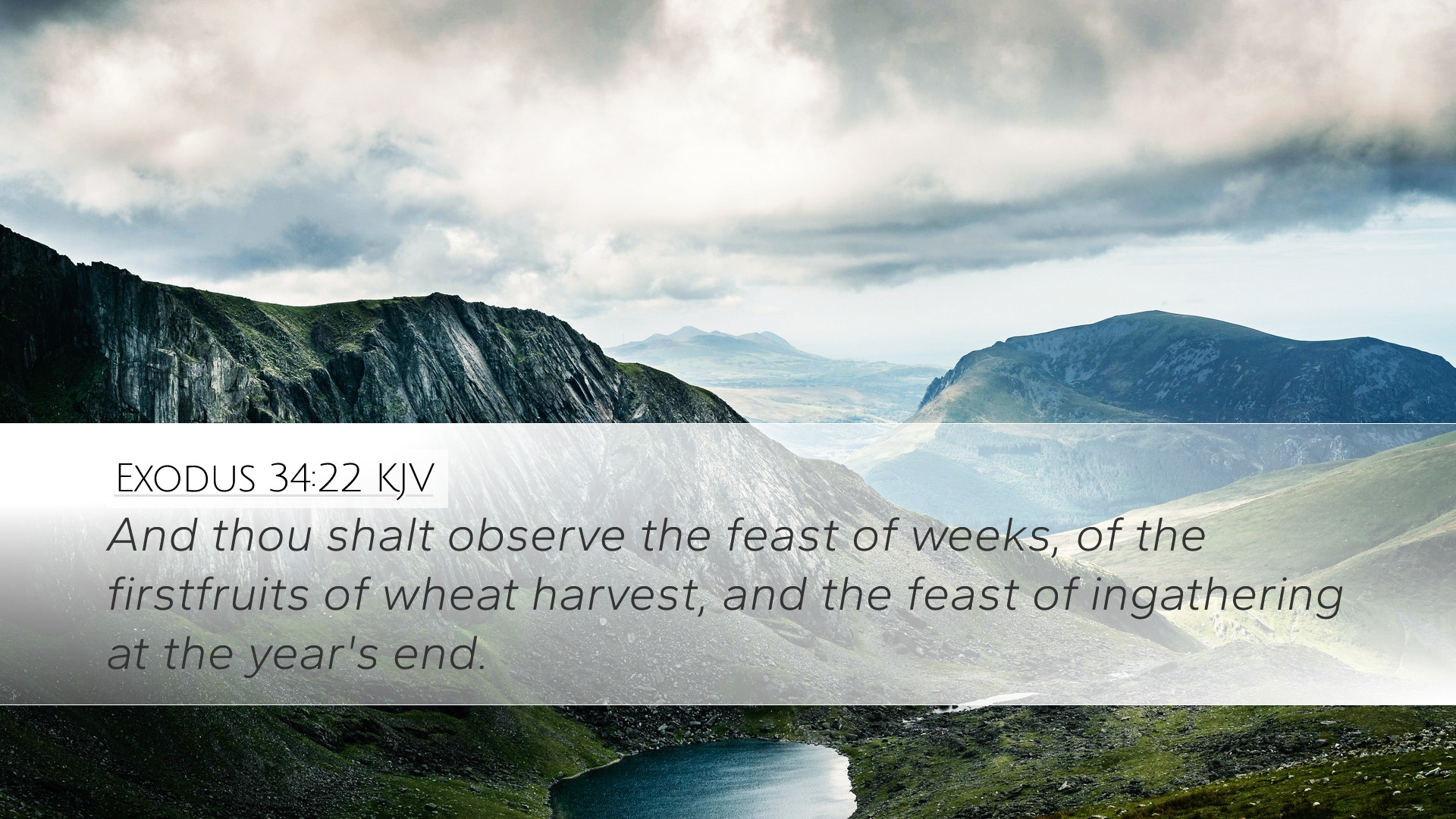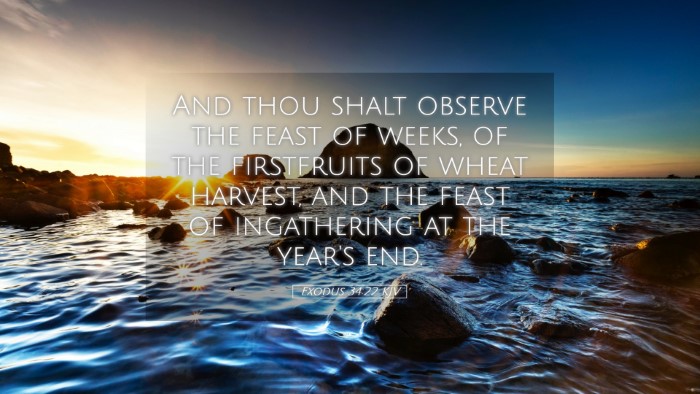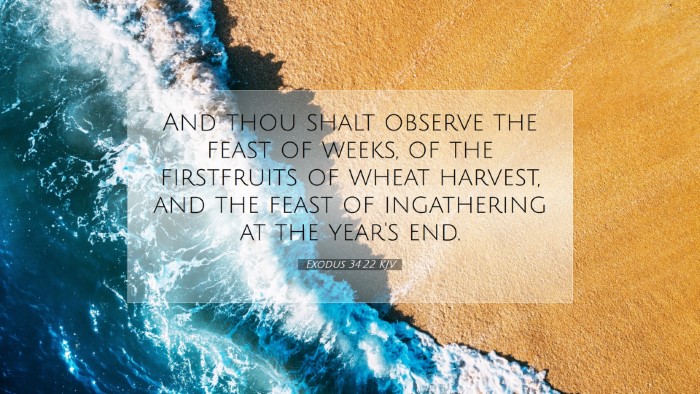Exodus 34:22 Commentary
Verse: Exodus 34:22 - "And thou shalt observe the feast of weeks, of the firstfruits of wheat harvest, and the feast of ingathering at the year's end."
Introduction
This verse encapsulates crucial elements of the agricultural and liturgical life of Israel as ordained by God. In studying the context of Exodus 34:22, we find rich theological implications woven through the commands regarding the Feast of Weeks and its related celebrations. Insights from various commentaries shed light on the significance and relevance of these observances.
Contextual Background
Exodus 34 presents Moses' renewed covenant with God after the episode of the golden calf. The chapter emphasizes the need for Israel to remain holy and faithful to God’s laws. The instructions for the feasts are framed within this covenantal renewal, showing that worship and remembrance of God's provision are integral to their identity. The feasts mentioned denote critical agricultural milestones, reflecting God's provision and Israel's dependence on Him.
Feast of Weeks (Shavuot)
The Feast of Weeks, or Shavuot, occurs seven weeks after Passover and celebrates the wheat harvest. Adam Clarke notes this feast's importance as a reaffirmation of Israel's dependency on the Lord’s bounty.
- Timing and Significance: Held in late May or early June, it marks the completion of the grain harvest, emphasizing gratitude toward God as the ultimate provider.
- Spiritual Implications: Matthew Henry highlights that this feast also signifies the giving of the Law at Sinai, linking agricultural prosperity with divine revelation and covenant.
Clarke further elaborates that observing this feast reminds Israel to acknowledge the Lord's blessings and maintain communal and religious integrity.
The Firstfruits of Wheat Harvest
The command to present the firstfruits of the wheat harvest refers to the offering of the initial yield as an acknowledgment of God’s sovereignty. Albert Barnes comments on the spiritual act of offering firstfruits as an expression of faith, as it demonstrates trust that God will provide further abundantly.
- Faith in Provision: Like the Israelites, believers today are encouraged to offer their best to God, symbolizing their reliance on His continual blessings.
- Resting in God’s Promises: This act reminds believers of the overarching theme of God’s provision, aligning with New Testament principles of sowing and reaping.
Feast of Ingathering (Sukkot)
Also called the Feast of Booths or Tabernacles, the Feast of Ingathering represents a time of harvest celebration and thanksgiving for God’s provisions over the agricultural year. This feast occurs in the autumn, marking the end of the harvest season.
- Covenantal Importance: Matthew Henry notes that this feast expresses the fulfillment of God’s promises, with the harvest serving as a symbol of spiritual and physical blessings.
- Community Engagement: Albert Barnes emphasizes the communal aspect of this celebration, encouraging unity and collective thanksgiving among God's people.
Moreover, it serves as a reminder of Israel's wilderness experience, where they relied solely on God for sustenance, serving collective memory as a foundation for their identity.
Theological Themes
Several themes emerge from Exodus 34:22 that can be explored in depth:
- Divine Provision: Both feasts signify acknowledgment of God as the source of life, linking spiritual expressions of gratitude with physical sustenance.
- Covenant Faithfulness: Observing these feasts reiterates the covenant relationship between God and Israel, affirming their collective identity.
- Hope and Anticipation: The harvest feasts point to future hope, as they symbolize not only sustenance but also the greater hope found in Christ as the fulfillment of God’s promises.
Pastoral Applications
Pastors and church leaders can derive several applications from Exodus 34:22:
- Encouraging Gratitude: Teaching congregations the importance of recognizing God’s provision in their lives can cultivate a spirit of thankfulness.
- Faithful Stewardship: This passage can serve as a basis for discussions on stewardship—encouraging church members to give back to God from their firstfruit offerings.
- Community Celebration: Organizing community events centered around harvest themes can reinforce unity and gratitude within the church body.
Conclusion
Exodus 34:22 invites a comprehensive understanding of worship through the lens of agricultural feasts. The rich tradition encapsulated within these celebrations reflects God's providential care and the covenant relationship He shares with His people. Pastors, students, and theologians are encouraged to explore these themes further, applying the timeless lessons of gratitude, community, and divine provision in their faith journeys and teachings.


